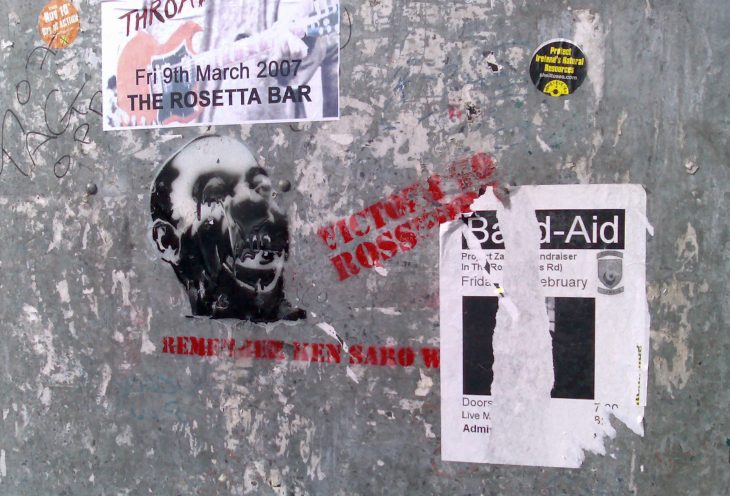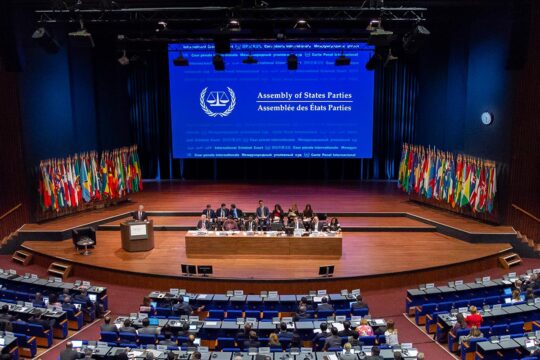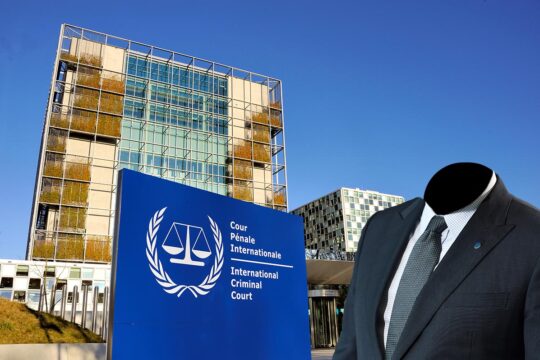The intensive exploitation of natural resources triggers serious environmental destruction locally that has serious consequences on the global ecosytem. Based on this scientific fact, the Global Greens ask to reorganize international environmental law on the model of international criminal law.
In July 2010 the International Criminal Court (ICC) launched a warrant of arrest against Omar Al Bashir, President of Sudan, for three counts of genocide including ''deliberately inflicting conditions of life calculated to bring about physical destruction'', among which the contamination of sources and water pumps of towns and villages. During several years in the 2000s, Fur, Masalit and Zaghawa people died or had to flee from their homes because, among other intentional violences, their environment was destroyed.
What if conditions of life that bring about destruction and forcible diplacement are inflicted deliberately but without intention of killing? So far, international criminal justice has been silent. Famous ecologist activist Ken Saro Wiwa (1941-1995) once put it in his essay Genocide in Nigeria: the Ogoni Tragedy[1]. Even if there was no intention by oil companies and the Nigerian government to destroy the small Ogoni minority living there, intense oil drilling in the Niger delta since 1958 had by the 1980s triggered the death of thousands of people. These deaths were due to cancer, forcible displacement of tens of thousands due to systematic dispossession of land, the inability of land to produce food, and the general poisoning of the environment making human life hardly possible in the region. In 1995, Ken Saro Wiwa was sentenced to death and executed by the Nigerian junta for denouncing such a tragedy. However in spite of a few civil trials that forced Shell to give financial compensation to some victims, no criminal justice - either national or international - has ever ruled on that terrible situation.
Today throughout the world, some local intense industrial mining, deforestation or greenhouse gas emissions go on having tremendous humanitarian consequences for people living around... and even far beyond. Recent research on climate change, but also research on ''planetary boundaries''[2] indeed proves that local harsh destruction of the environment can have very serious consequences for human beings and other species in other parts of the planet. Beside its humanitarian consequences, serious destruction of the environment for economic or any other purpose locally should be considered highly criminal for it undermines the conditions of all life globally. Like serious violations of human rights that affect human dignity, it should be considered as international crime.
For that matter, during last Global Greens Congress that took place in Liverpool late March, we drafted, discussed and finally voted a legal resolution to ''Tackle environmental destruction''. In our view, it's high time to close the huge loopholes in international criminal law that permit people and even whole animal species to die as a consequence of too intensive corporate exploitation of nature. In order to bridge this gap, we suggest that environment international law and its more than 3000 fragmented treaties (on oceans, coasts, forests...) be unified in one single international Codex of Principles, as all international treaties on humanitarian law were unified in 1998 into the Rome Statute founding the ICC. At the top of the offences concerned by this binding Codex of Principles would be environmental destruction internationally described as ''crime of ecocide'', a notion that is still to be defined precisely from various recent attempts (Planetary Boundaries, Rights of Nature, Rights of Future Generations, Global Commons, etc.).
In this perspective, it is obvious that we very warmly welcome the ICC Prosecutor's intention to investigate on Rome Statute crimes ''that are committed by means of, or that result in the destruction of the environment, the illegal exploitation of natural resources or the illegal dispossession of land''[3]. But because of some ICC's drawbacks such as a complementary approach that unfortunately allows actual lack of cooperation by various states, we urge the international community to get involved in the creation of an International Environmental Court under the authority of the United Nations. This Court should have mandatory powers on national justices. It should be designed to prevent and judge the most serious environmental crimes and thus be the core element of a binding architecture of international environmental law.
*- Benjamin Bibas et Marie Toussaint (Europe Ecologie les Verts, France)
- Sylvio Michel (Greens fraternal of Mauritius)
- Michael Kellner et Thomas Künstler (BÜNDNIS 90/DIE GRÜNEN, Germany)
- Tiina Rosberg (Vihreät De Gröna, Finland)
- Mikel Rodriguez (Equo, Spain)
[1] Saros International Publishers, London, 1992.
[2] Nine “planetary boundaries”, or nine thresholds on core environmental issues, beyond which human existence would be threatened. The concept has been introduced in 2009 by a group of international scientists, led by Johan Rockström (Stockholm Resilience Centre) and Will Steffen (Australian National University), and comprises climate change, ocean acidification, ozone depletion, phosphorus and nitrogen cycles, biodiversity loss, land-system change, aerosol loading, freshwater consumption and chemical pollution.
[3] Policy Paper on Case Selection and Prioritisation, ICC, Office of the Prosecutor, September 2016.






